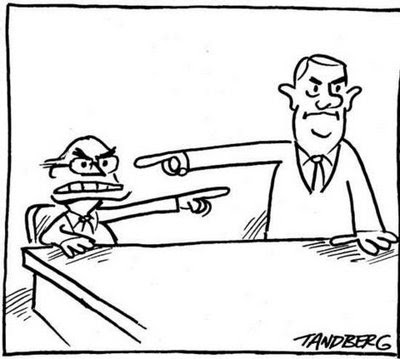Prior to entering it myself I had a very poor view of the recruitment sector. This was based on my experiences as a hiring manger and also as a Consultant working with businesses to transform sales effectiveness. What I saw were agencies that had little to no idea about the role I was looking to fill, who didn’t take the time to really understand my needs and were focussed on getting me CV’s in the quickest possible time so that they could get their fee – quality didn’t really seem to be a consideration.
So, since entering the recruitment sector has my view of it improved? Well no, it’s actually worse! Nearly every candidate that I meet has tales of woe about their experiences with recruitment agencies – ranging from a lack of understanding as to what they can bring to an organisation, positions being put forward to them that in no way fit their expectations and experience; to a general lack of courtesy and tardiness in terms of response and feedback …… the list goes on.
Of course there are good recruiters and good agencies out there, but based on my own experiences and the feedback from the hundreds of candidates and hiring managers that I have met they are regrettably in the minority.
So why is this case? How can a sector that provides such a valuable service have evolved to deliver those services in such a shoddy manner? Could it be that HR Departments are actually getting the service that they deserve? Perhaps the recruitment sector has evolved around the way in which many HR Dept’s treat recruitment – at best transactionally and at worst with a distinct lack of pride.
HR Dept’s engage multiple recruitment agencies on a Preferred Supplier arrangement, on a no win no fee basis that engenders the very issues that create this poor level of service. Job descriptions are issued by HR – often without understanding the roles true needs. Worse still they don’t want the recruiter to engage with the hiring manager to allow them to develop a detailed understanding of what they really need. So what happens next, the recruiter acts accordingly (read fast) and fires out some CV’s in the hope that some might stick. Of course they have no real understanding of their clients true needs because they have not engaged with them in a meaningful way, nor have they been able to engage with potential candidates in a meaningful way and get them interested because they don’t have the information they need to do so.
Of course the PSL model is there to drive cost and efficiency – but does this actually happen? It doesn’t take into account the cost of hiring the wrong people. In Sales & Business Development roles this can be very significant – not just in terms of direct costs (salary, N.I., training, recruitment costs, etc.), but more importantly in the cost of lost opportunity. Staggeringly 60% – 70% of new sales / BD hires don’t make it to the two year mark.
So what can we do about it? Well, for those recruitment agencies and hiring organisations that want to continue working this way – I say let them. Maybe there is a place for this transactional model in volume recruitment, who am I to say.
However, I for one am not prepared to work in this way. My aim is to ensure that my clients hire the very best sales talent. Not just a great sales professional though, but the right individual, someone that is capable of making a significant positive impact for their employer, within their competitive landscape and within the dynamics of their sales cycle and sales process and fitting within their culture. That is simply not possible in this transactional PSL driven model.
My focus is on really getting to know my clients and candidates, consulting with them and leveraging my experience in sales & sales talent to drive real value. I expect my clients to set the bar high and to expect a high level of insight from me, but I also expect them to provide the right access and information that I need to do my job. I also expect that they will work with me on an exclusive basis – allowing me the time to identify the right person, not just who is available. Not surprisingly this approach yields better results – over 90% of the candidates that we have placed over the past two years are still with those employers.
Doing what we do and getting the results that we do isn’t rocket science, in fact it’s remarkably simple. Ok, so in our case we do have a very deep understanding of the roles that we hire for – but shouldn’t every agency?
So the question remains who is to blame for a shoddy recruitment service – HR Dept’s or Recruitment Agencies?

